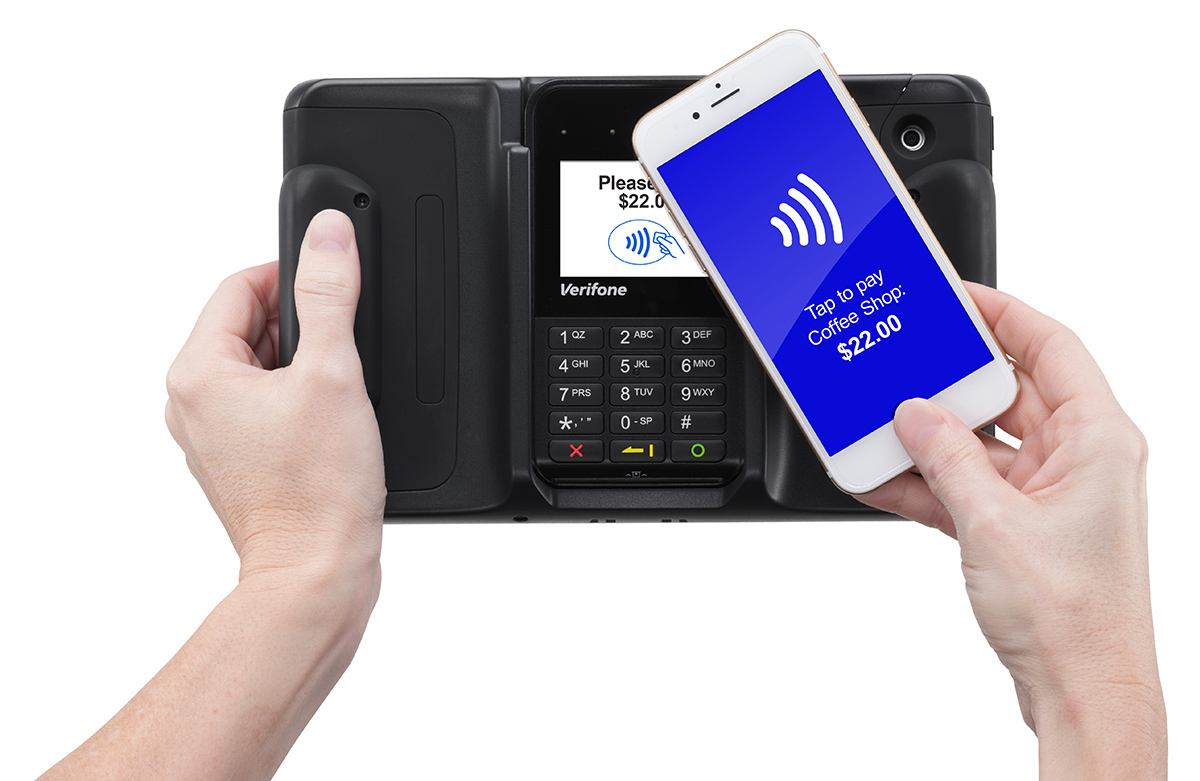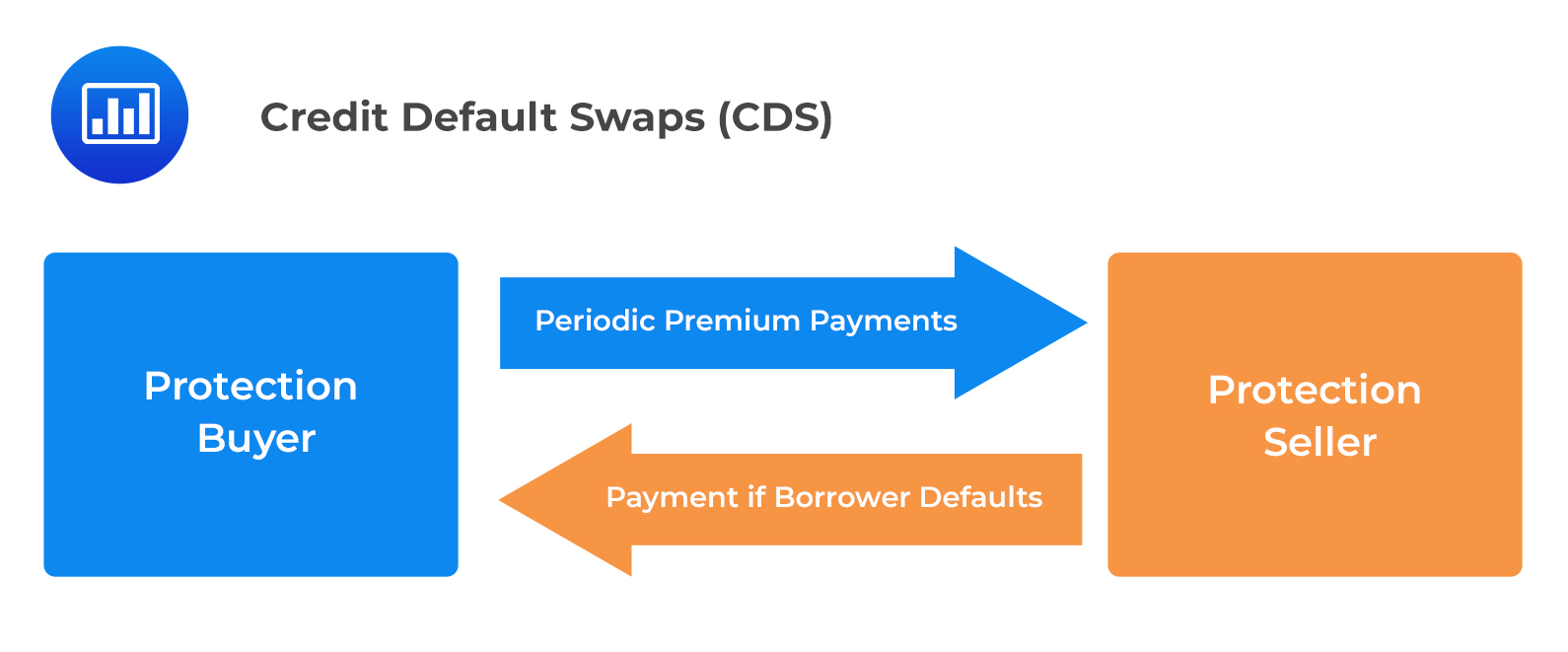

Finance
How To Use 401K To Buy A Business
Modified: December 30, 2023
Learn how to leverage your 401K retirement savings to finance the purchase of a business. Discover the benefits and steps to take for a successful investment.
(Many of the links in this article redirect to a specific reviewed product. Your purchase of these products through affiliate links helps to generate commission for LiveWell, at no extra cost. Learn more)
Table of Contents
- Introduction
- Understanding 401k Plans
- The Financial Pros and Cons of Using a 401k to Buy a Business
- Evaluating Potential Business Opportunities
- Setting Up a Self-Directed 401k Plan
- Rollover Options for Utilizing 401k Funds
- The Process of Investing 401k Funds in a Business
- Potential Risks and Considerations
- Tax Implications and Legal Requirements
- Conclusion
Introduction
Have you ever dreamed of being your own boss and owning your own business? Many people have, but the thought of starting a business from scratch can be daunting. Fortunately, there is another option – using your 401k to buy an existing business.
A 401k is a retirement savings plan offered by employers to their employees. It allows individuals to contribute a portion of their salary pre-tax and invest it in various financial instruments, such as stocks, bonds, and mutual funds. While 401ks are traditionally intended for retirement savings, they can also be a source of capital to fund entrepreneurial endeavors.
Using your 401k to buy a business can offer several advantages. Firstly, it allows you to leverage the funds you have already saved and access them without taking on additional debt. Secondly, buying an existing business provides a head start, with an established brand, customer base, and revenue stream. Lastly, it can be a less risky option compared to starting a business from scratch, as you can assess its profitability and growth potential before making the investment.
However, before you decide to use your 401k to buy a business, it is essential to understand the financial considerations, risks, and legal requirements involved. In this article, we will explore the pros and cons of using a 401k to buy a business, the process of investing 401k funds, and the potential risks and tax implications you need to be aware of.
So, if you are ready to explore the possibility of using your 401k to buy a business, let’s dive in and explore the opportunities and challenges that lie ahead.
Understanding 401k Plans
Before delving into using your 401k to buy a business, it’s crucial to have a solid understanding of what a 401k plan is and how it works. A 401k is a retirement savings plan offered by employers to their employees, allowing them to contribute a portion of their salary to save for retirement.
Contributions to a 401k plan are typically made on a pre-tax basis, meaning that the amount is deducted from your paycheck before taxes are applied. This provides an immediate tax advantage, as your taxable income is reduced by the amount contributed to your 401k. Over time, the contributions grow tax-deferred until you start withdrawing them during retirement.
Employers often offer a matching contribution, where they contribute a certain percentage to your 401k based on the amount you contribute. This is essentially free money that can boost the growth of your retirement savings.
It’s essential to note that there are limitations to how much you can contribute to a 401k plan. The IRS sets maximum contribution limits each year, which can vary depending on your age and individual circumstances. It’s advisable to consult with a financial advisor to ensure you are maximizing your contributions while staying within the allowed limits.
Investment options within a 401k plan typically include a range of mutual funds, stocks, bonds, and sometimes even company stock. It’s important to regularly review and manage your investment portfolio to ensure it aligns with your risk tolerance and retirement goals.
One key feature of a 401k plan is that it is portable. This means that if you change jobs, you can typically roll over your 401k funds into a new employer’s plan or into an Individual Retirement Account (IRA). This portability provides flexibility and control over your retirement savings, allowing you to make strategic decisions when it comes to utilizing your 401k to buy a business.
Understanding the basics of a 401k plan is vital when considering using it to fund the purchase of a business. It’s essential to be aware of the rules and regulations surrounding 401k plans and the potential implications of withdrawing or utilizing those funds. In the following sections, we will explore the financial pros and cons and the process of investing 401k funds in a business.
The Financial Pros and Cons of Using a 401k to Buy a Business
Using your 401k to buy a business can offer various financial advantages, but it’s crucial to weigh the pros and cons before making the decision. Let’s explore the potential benefits and drawbacks:
Pros:
1. Access to Capital: One significant advantage of using your 401k to buy a business is access to a substantial amount of capital. Rather than relying on traditional loans or investors, you can utilize the funds you have already saved. This eliminates the need to take on additional debt, potentially saving you from interest payments and increasing your financial flexibility.
2. Established Revenue Stream: When you buy an existing business, you aren’t starting from scratch. The business likely has an established customer base and revenue stream, providing you with immediate cash flow. This can be a significant advantage, as you can start generating income from day one, reducing the risk associated with starting a brand-new venture.
3. Brand and Reputation: Another benefit of purchasing an existing business is that it may already have a recognized brand and a positive reputation in the market. Building brand awareness takes time and effort, but by acquiring an established business, you can inherit its reputation, loyal customers, and existing market presence.
4. Potential for Growth: Buying an existing business presents the opportunity to leverage its existing resources and infrastructure to drive growth. With the right strategic planning and implementation, you can expand the business, introduce new products or services, and tap into new markets. This potential for growth can be an enticing factor when considering using your 401k to purchase a business.
Cons:
1. Depletion of Retirement Savings: Using your 401k to buy a business means tapping into your retirement savings. This can significantly diminish the amount of funds you have set aside for your future. It’s important to carefully consider how much of your savings you are willing to allocate toward the business and the impact it may have on your retirement plans.
2. Investment Risk: Investing 401k funds in a business carries inherent risks. While every investment has the potential for success or failure, the risk is heightened when you are using your retirement savings. Business ownership comes with various uncertainties, including market fluctuations, competition, and unforeseen circumstances. It’s essential to conduct thorough due diligence and ensure that the business you are purchasing has a solid foundation and growth potential.
3. Lack of Diversification: By using your 401k funds to buy a business, you are putting a significant portion of your savings into one investment. This lack of diversification can be risky since if the business doesn’t perform as expected, your entire investment could be at stake. It’s vital to consider diversifying your portfolio and having alternative retirement savings strategies in place.
4. Limited Liquidity: Once you invest your 401k funds in a business, they become illiquid. Unlike stocks or bonds that can be easily sold, extracting the funds from a business can be a time-consuming and challenging process. It’s essential to have a long-term plan in place and be prepared for a potentially extended period without access to your funds.
It is crucial to conduct a thorough financial evaluation and consult with financial professionals and advisors before using your 401k to buy a business. They can help you assess the financial feasibility, potential return on investment, and the impact on your retirement savings.
Next, we will explore how to evaluate potential business opportunities and set up a self-directed 401k plan that allows for business investment.
Evaluating Potential Business Opportunities
When considering using your 401k to buy a business, it’s essential to carefully evaluate potential opportunities to ensure you make an informed decision. Here are some key factors to consider when evaluating potential business opportunities:
1. Industry and Market Analysis:
Conducting a comprehensive analysis of the industry and market in which the business operates is crucial. Look at market trends, growth potential, competition, and any regulatory factors that may impact the business. Understanding the market dynamics will help you assess the long-term viability and growth prospects of the business.
2. Financial Performance:
Review the financial records and performance of the business, including its revenue, profit margins, and expenses. Look for consistent financial performance over a significant period. Assess key financial ratios, such as return on investment and liquidity ratios, to gauge the financial health of the business. It’s advisable to enlist the help of a financial advisor or accountant to analyze the financials and identify any red flags.
3. Customer Base and Reputation:
Examine the customer base of the business, including its size, loyalty, and potential for growth. A strong and loyal customer base can be a valuable asset when acquiring a business. Evaluate the brand reputation, customer reviews, and any feedback to assess the business’s standing in the market and the likelihood of customer retention.
4. Operations and Infrastructure:
Assess the operational aspects of the business, including its organizational structure, processes, and supply chain. Evaluate its technology infrastructure, equipment, and any intellectual property rights that the business possesses. Understanding the operational efficiency and scalability of the business is crucial for its long-term success.
5. Growth Potential:
Consider the growth potential of the business. Are there opportunities to expand the product or service offerings, enter new markets, or leverage digital platforms? Look for untapped potential that aligns with your skills, resources, and long-term goals. A business with growth potential can provide an opportunity for increased profitability and return on investment.
6. Legal and Regulatory Compliance:
Ensure that the business complies with all applicable legal and regulatory requirements. This includes reviewing licenses, permits, contracts, and any potential legal liabilities. Engage with legal professionals to conduct a thorough due diligence process and mitigate any legal risks associated with the business.
Evaluating potential business opportunities is a critical step in the decision-making process. It’s advisable to create a checklist or evaluation framework that aligns with your specific criteria and priorities. Engaging with industry experts, business brokers, and professional advisors can provide valuable insights and guidance throughout this evaluation process.
Once you’ve identified a suitable business opportunity, the next step is setting up a self-directed 401k plan that allows for investment in a business. This will be explored in the next section.
Setting Up a Self-Directed 401k Plan
If you decide to use your 401k to buy a business, you’ll need to set up a self-directed 401k plan. This type of plan allows you to have more control over your investment choices, including investing in a business. Here are the steps to setting up a self-directed 401k plan:
1. Understand Self-Directed 401k Rules:
Before proceeding, familiarize yourself with the rules and regulations surrounding self-directed 401k plans. Although the IRS permits investing in a business through a self-directed 401k, there are specific guidelines to follow, such as prohibited transactions and disqualified parties. Seek guidance from a qualified financial professional or retirement plan administrator to ensure compliance.
2. Choose a Self-Directed 401k Provider:
Select a reputable self-directed 401k provider that specializes in offering investment options beyond traditional stocks and bonds. There are numerous providers in the market, so do your due diligence to find one that meets your needs and offers the flexibility to invest in a business.
3. Establish the Plan:
Work with your chosen self-directed 401k provider to establish the plan. This involves completing the necessary paperwork, setting up a trust account, and establishing a plan document. The provider will guide you through this process, ensuring all legal and regulatory requirements are met.
4. Rollover Funds:
If you already have a 401k with your current employer, you may need to rollover the funds into your new self-directed 401k plan. This can usually be done through a direct rollover or a trustee-to-trustee transfer. Consult with your self-directed 401k provider or financial advisor to determine the best method for transferring the funds.
5. Select Business Investment Options:
Once your self-directed 401k plan is established and funded, you can start exploring business investment options. Conduct thorough research and due diligence on potential businesses that align with your investment criteria and risk tolerance. Consider engaging the services of a professional business broker or consultant to help you identify suitable opportunities.
6. Consult with Professionals:
Engage with professionals who specialize in business acquisitions, such as attorneys, accountants, and business valuation experts. They can provide guidance and expertise throughout the due diligence process, ensuring you make an informed decision when investing your 401k funds in a business.
Setting up a self-directed 401k plan can be complex, so it’s essential to seek professional assistance to navigate the process correctly. Remember to stay within the guidelines and regulations set by the IRS to avoid any penalties or legal issues.
Next, we will explore the options for utilizing your 401k funds to invest in a business.
Rollover Options for Utilizing 401k Funds
When utilizing your 401k funds to invest in a business, you have several rollover options to consider. These options allow you to transfer your existing 401k funds into a self-directed 401k or another retirement account that allows for business investment. Here are the common rollover options:
1. Direct Rollover:
A direct rollover involves transferring your 401k funds directly from your current employer’s plan to a self-directed 401k plan or an Individual Retirement Account (IRA). This is typically the simplest and most straightforward method, as the funds are transferred directly between the financial institutions, minimizing any tax implications or penalties.
2. Indirect Rollover:
An indirect rollover involves receiving a distribution from your 401k and then depositing it into a self-directed 401k or IRA within 60 days. It’s crucial to complete the rollover within this timeframe to avoid any tax withholding or penalties. However, it’s important to note that if you choose this option, 20% of the distribution may be withheld for federal income taxes.
3. Rollover to a Business Owner’s 401k:
If you are purchasing a business and it has its own 401k plan, you may be able to rollover your existing 401k funds into the business’s 401k plan. However, this option is only available if the new employer’s plan accepts rollovers and if it allows for investment in the business itself. Consult with your new employer or plan administrator to evaluate this option.
4. Rollover to a Self-Directed IRA:
If a self-directed 401k is not available or suitable for your investment goals, you can consider rolling over your 401k funds into a self-directed Individual Retirement Account (IRA). This option provides similar flexibility in terms of investment choices and allows for business investment. It’s important to select a self-directed IRA provider that offers the investment options you desire.
Regardless of the rollover option you choose, it’s crucial to understand the potential tax implications and any consequences associated with early withdrawals or taxable events. Consult with a financial advisor or tax professional to determine the best rollover option for your specific circumstances and to ensure compliance with IRS rules and regulations.
Once you have completed the rollover process and have the funds in your self-directed 401k or IRA, you can proceed with the process of investing those funds in a business. The next section will outline the process of investing your 401k funds in a business.
The Process of Investing 401k Funds in a Business
Investing your 401k funds in a business requires a well-defined process to ensure a smooth and successful transition. Here are the key steps involved in investing your 401k funds in a business:
1. Determine Investment Amount:
Review your 401k balance and determine the amount you are willing to invest in the business. Consider your long-term financial goals, risk tolerance, and the impact on your retirement savings. It’s crucial to strike a balance between funding the business and maintaining an adequate cushion for your retirement needs.
2. Identify Potential Business Opportunities:
Identify potential business opportunities that align with your investment criteria and objectives. Conduct thorough market research, assess the financial viability of the business, and evaluate its growth potential. Engage with professionals, such as business brokers and consultants, to help identify suitable businesses for investment.
3. Perform Due Diligence:
Thoroughly evaluate the business you intend to invest in. Perform due diligence to analyze its financial records, customer base, operational processes, and legal compliance. Engage with professionals, such as attorneys and accountants, to help review contracts, licenses, and any potential legal liabilities. This step is crucial to ensure you are making an informed investment decision.
4. Structure the Investment:
Determine the structure of your 401k investment in the business. This could involve purchasing equity in the business, providing a loan or debt financing, or exploring other investment structures. Consult with legal and financial professionals to determine the best structure that aligns with your investment goals and complies with regulatory requirements.
5. Execute the Investment:
Once you have completed the necessary due diligence and finalized the investment structure, it’s time to execute the investment. This typically involves signing the necessary legal agreements, transferring the funds from your self-directed 401k or IRA, and completing the necessary documentation for the investment to take effect.
6. Monitor and Manage the Investment:
After investing your 401k funds in the business, it’s important to monitor and manage the investment. Stay actively involved in the business’s operations, review financial reports, and assess its progress towards meeting growth objectives. Regularly evaluate the performance of the investment and make strategic decisions to ensure its long-term success.
It’s important to note that investing 401k funds in a business can be complex and involves risks. It’s advisable to seek guidance from professionals, such as attorneys, accountants, and financial advisors, who specialize in business acquisitions and retirement planning. They can help navigate the intricacies of the process and provide valuable insights to mitigate risks and maximize returns.
Next, we will explore potential risks and considerations when using your 401k to buy a business.
Potential Risks and Considerations
While using your 401k to buy a business can offer exciting opportunities, it’s essential to understand and carefully consider the potential risks involved. Here are some key risks and considerations to keep in mind:
1. Business Performance:
The success of the business is not guaranteed. Economic conditions, market fluctuations, competition, and various other factors can impact its performance. There is a risk that the business may not generate the expected revenues or profits, which could result in a loss on your investment.
2. Relying on a Single Investment:
Investing a significant portion of your 401k funds in a single business means putting all your eggs in one basket. If the business encounters financial difficulty or fails, your retirement savings could be significantly impacted. Diversification is crucial to mitigate risk, so consider having alternative retirement savings strategies in place.
3. Time and Effort:
Running a business can be time-consuming and demanding. It may require a significant commitment of time, effort, and expertise to manage and grow the business successfully. Consider your own skills, experience, and willingness to devote the necessary resources before investing your 401k funds.
4. Illiquid Investment:
Investing your 401k funds in a business makes it illiquid, meaning it may be challenging to access or sell those funds quickly. Unlike publicly traded stocks or bonds, selling a business or liquidating your investment can be a time-consuming process. Be prepared for potential delays in accessing your funds if needed.
5. Retirement Plan Impact:
Using your 401k funds for business investment can impact your retirement plans. It may reduce the amount of savings you have available for retirement, potentially affecting your financial security in your golden years. Carefully consider the impact on your retirement goals and consult with a financial advisor to ensure you have a well-rounded retirement plan.
6. Legal and Regulatory Requirements:
Buying a business involves legal and regulatory considerations that need to be addressed. Ensure compliance with all applicable laws, licenses, permits, and industry-specific regulations. Engage with legal professionals to conduct proper due diligence and understand any potential legal risks associated with the business.
It’s essential to assess these risks and considerations thoroughly. Conduct rigorous due diligence, seek advice from professionals, and carefully evaluate the potential rewards and risks before using your 401k to buy a business.
Next, we will explore the tax implications and legal requirements you need to be aware of when utilizing your 401k funds for business investment.
Tax Implications and Legal Requirements
Utilizing your 401k funds to buy a business carries important tax implications and legal requirements that should not be overlooked. Understanding and complying with these obligations is crucial to avoid penalties and ensure a smooth transition. Here are key tax and legal considerations to keep in mind:
Tax Implications:
1. Early Withdrawal Penalties: Withdrawing funds from your 401k before reaching the age of 59 1/2 typically incurs an early withdrawal penalty of 10%. However, there are exceptions for using 401k funds for business acquisition or under specific hardship circumstances. Consult with a tax professional to understand the potential penalties and exceptions that may apply to your situation.
2. Taxation of Distributions: Any withdrawals made from your 401k, whether for business investment or retirement, are subject to income tax. When you invest your 401k funds in a business, the funds are considered a distribution and are taxable as ordinary income for the year in which they are withdrawn.
3. Unrelated Business Taxable Income (UBTI): If your self-directed 401k invests in a business that generates income unrelated to its tax-exempt purpose (such as rental income or active business income), the portion of that income designated as UBTI may be subject to unrelated business income tax. Consult with a tax professional to understand UBTI regulations and potential tax implications.
Legal Requirements:
1. Prohibited Transactions: The IRS strictly prohibits certain transactions when using your 401k funds for business investment. These include self-dealing, transactions with disqualified persons (such as immediate family members), and using the funds to benefit the plan participant directly. Be aware of these prohibited transactions to ensure compliance and avoid penalties.
2. ERISA Compliance: If your self-directed 401k plan has more than 100 participants, it may be subject to the Employee Retirement Income Security Act (ERISA) regulations. ERISA imposes fiduciary duties, reporting requirements, and other obligations on the plan sponsor. Understand and comply with ERISA requirements to ensure the lawful operation of your self-directed 401k plan.
3. State and Local Laws: In addition to federal regulations, be aware of any state and local laws that may impact your business investment. Each jurisdiction may have its own rules regarding business ownership, licenses, permits, zoning, and other legal considerations. Consult with legal professionals familiar with the local legal requirements to ensure compliance.
It is essential to consult with qualified professionals, such as tax advisors, attorneys, and retirement plan administrators, to ensure compliance with tax laws and legal requirements when using your 401k funds to buy a business. They can guide you through the necessary steps and help you navigate any complexities associated with tax and legal matters.
Next, we will conclude our exploration of using your 401k to buy a business.
Conclusion
Utilizing your 401k to buy a business can be an exciting opportunity for aspiring entrepreneurs and those looking to transition into business ownership. It offers potential advantages such as access to capital, an established customer base, and the opportunity for growth. However, it is crucial to carefully consider the financial pros and cons, evaluate potential business opportunities, and understand the tax and legal implications before making the decision.
When using your 401k to buy a business, it’s important to have a solid understanding of your 401k plan, including the rules, contribution limits, and investment options. Setting up a self-directed 401k plan allows for greater control over your investment choices, including investing in a business.
Evaluating potential business opportunities involves conducting thorough market analysis, assessing the financial performance of the business, and considering the growth potential. Engage with professionals and perform due diligence to ensure you make an informed decision.
When investing your 401k funds in a business, it’s crucial to follow a structured process, including determining the investment amount, identifying suitable business opportunities, performing due diligence, structuring the investment, and monitoring its performance over time.
However, it’s important to be aware of the potential risks and considerations. These include the business’s performance, reliance on a single investment, time and effort required, illiquidity of the investment, and the impact on your retirement plans.
Additionally, be mindful of the tax implications and legal requirements associated with using your 401k funds for business investment. Understand the potential penalties, taxation of distributions, and compliance with prohibited transactions and ERISA regulations.
Ultimately, using your 401k to buy a business requires careful consideration, thorough research, and professional guidance. Consult with financial advisors, tax professionals, and legal experts to navigate the complexities successfully.
Remember, investing your 401k funds in a business involves both financial and personal decisions. It is essential to align your investment goals, risk tolerance, and entrepreneurial aspirations to make a well-informed choice.
By taking a cautious and informed approach, utilizing your 401k to buy a business can be a fulfilling and potentially rewarding venture. So, if you are ready to embark on this entrepreneurial journey, carefully evaluate the opportunities, manage the risks, and make a confident decision that aligns with your long-term goals.














